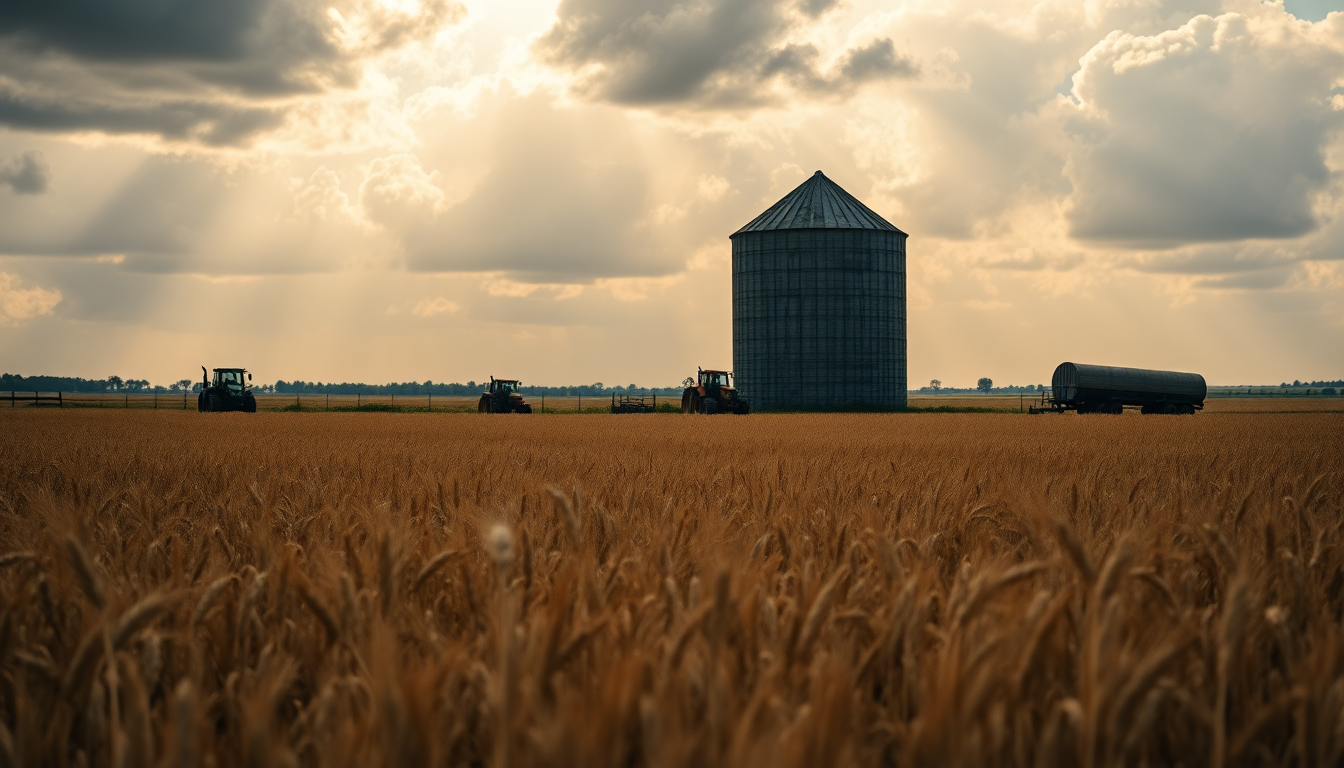Table of Contents
As global events unfold and our world faces numerous challenges, one pressing concern has emerged: the rise of **agroterrorism** as a very real threat to the United States. This form of terrorism targets the agricultural sector, potentially leading to significant disruptions in our food supply. Recent incidents, including the arrests of individuals accused of smuggling harmful pathogens, underscore the urgency for increased vigilance and a deeper understanding of this emerging risk. How prepared are we really?
The Current Landscape of Agroterrorism
So, what exactly is agroterrorism? It refers to the intentional introduction of harmful agents into our agricultural system, and the consequences could be devastating for both crops and livestock. A recent case involving the apprehension of two Chinese nationals charged with smuggling a dangerous fungus known as **Fusarium graminearum** really puts this threat into perspective. This particular pathogen is notorious for causing head blight in staple crops like wheat and barley, leading to billions of dollars in losses each year. Can you imagine the impact on our food availability if such a threat were to escalate?
Kristofor Healey, a former official with the Department of Homeland Security, emphasizes that agroterrorism isn’t just a theoretical worry; it’s a very real concern for the U.S. agricultural economy. He points out, “We are an agricultural-based economy in many ways,” highlighting that any disruption could ripple through our food systems, affecting availability and price stability. Isn’t it alarming to think about how interconnected our food supply is?
Healey further warns that many Americans might not fully grasp how foreign adversaries could exploit this vulnerability, especially amid rising geopolitical tensions. For instance, if a major conflict were to erupt—think a war over Taiwan—the consequences for U.S. agriculture could be disastrous, with adversaries possibly targeting vital infrastructure. How do we safeguard our farms and food sources in such a scenario?
Foreign Threats and Their Implications
The implications of these threats stretch far beyond economic loss; they touch on national security and public health. The toxic nature of **Fusarium graminearum**, which poses risks not just to crops but also to human health, exemplifies the multifaceted dangers we face. Exposure can lead to symptoms like vomiting, liver damage, and reproductive defects, raising concerns about potential public health crises. Isn’t it time we took these risks seriously?
Given the urgency of agricultural threats—especially in the wake of the COVID-19 pandemic, which showed us how biological threats can quickly disrupt our daily lives—Healey advocates for a comprehensive national security approach. This should encompass not just physical threats like bombs or weapons but also biological and agricultural vulnerabilities. Are we ready to rethink our security measures?
It’s crucial that we take proactive steps. As the U.S. prioritizes border security and anti-terrorism strategies, we must also weave agricultural defense into our overall security framework. This means closely monitoring foreign nationals with scientific backgrounds entering the country, ensuring they don’t pose risks to the agricultural sector. How can we bolster our defenses against such threats?
Preparing for the Future: A Call to Action
In light of the rising risks associated with agroterrorism, individuals and communities must take proactive steps to prepare for potential threats. While stockpiling supplies might seem like an extreme measure, being aware of vulnerabilities within our agricultural system is essential. Adopting a forward-thinking mindset that anticipates challenges will help us prepare for whatever comes next. What steps can you take to stay informed?
Additionally, public awareness campaigns can play a crucial role in educating citizens about the nature of agroterrorism and its potential impacts. This education is vital for fostering a resilient society capable of effectively responding to such threats. Just as we’ve learned from the COVID-19 pandemic, preparedness is key to mitigating the effects of any crisis. Are you ready to join the conversation?
In summary, the threat of agroterrorism is real and deserves our attention. By understanding the challenges and potential repercussions, we can better equip ourselves to face the future. As we navigate this complex landscape, it’s imperative that we remain vigilant and proactive in safeguarding our agricultural and food supply systems. The future of our food security depends on it.


